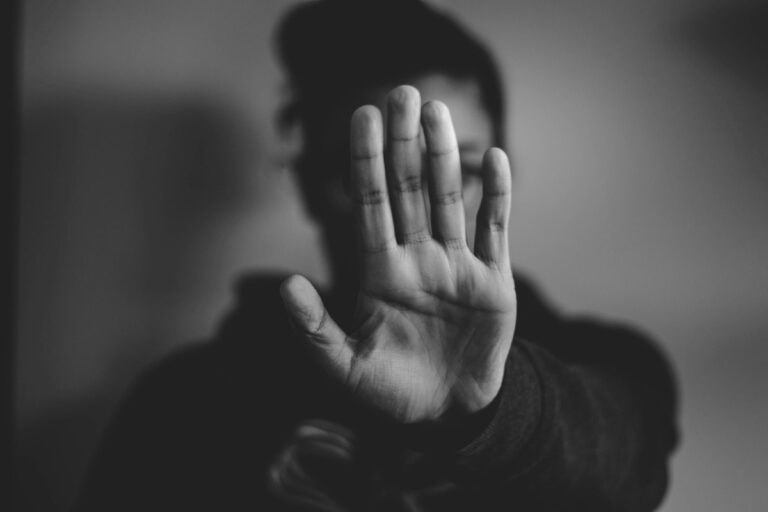As someone who has been on the spiritual path for many years now, I’ve come to realize the importance of looking at spirituality from different perspectives. One of those perspectives is that of psychology.
In my experience, I realized that there is an overlap between living a spiritual life and recognizing the importance of taking care of your everyday human part of your being, especially your mental health.
For years, I’ve witnessed within the spiritual community many people who were part of the community who would benefit from engaging in more traditional forms of self-exploration, which in my case was through therapy and psychology.
In my experience, I realized that there is an overlap between living a spiritual life and recognizing the importance of taking care of your everyday human part of your being, especially your mental health.
In this article, we are going to explore a very important topic that affects sensitive people and empaths, and that is how a specific group of people that we may interact with can disturb our well-being.

The people who may cause real havoc in our lives as sensitives are those, that are prone to playing the victim to suck us into their drama with their unwillingness to take responsibility for their own lives and dump this responsibility on us.
Understanding the Patterns Behind Victim Behavior
Energy Drain and Weak Boundaries
One of the first signs you will notice when dealing with a person who is always playing the victim is the fact that whenever you interact with them you leave the interaction feeling drained, heavy, even lightheaded, and questioning if you had done something wrong that might have caused their shortcomings they complained about.
This is a sign that your boundaries of what is acceptable and not acceptable behavior from other people are weak. So, the first step in my experience is to recognize that you have weak boundaries by letting these people take advantage of your deep empathy for them, leaving you empty.
Realize you are responsible only for yourself, and that everyone can handle their own burdens in life and make things work for them. So, don’t feel guilty when you need to set boundaries between you and them, because it’s they who need to act in dealing with their issues instead of passing the responsibility onto you.
One of the first signs you will notice when dealing with a person who is always playing the victim is the fact that whenever you interact with them you leave the interaction feeling drained, heavy, even lightheaded, and questioning if you had done something wrong that might have caused their shortcomings they complained about.
People who exhibit this behavior also project their own unresolved wounds and drama towards you. You might feel the need to monitor every word you say, or every move you make to avoid conflict with these people, which feels like walking on eggshells when you are around them.
This can also lead to you abandoning your own sovereignty, by feeling always guilty about something that you have done that made them lash out on you, which under normal circumstances you would know that it wasn’t your fault but their own doing.
Restoring Balance by Spotting the Signs
The good thing is that when you spot the signs that you are dealing with a person who is always playing the victim, you can, in time, stop being drawn towards their negativity, and start setting healthy boundaries between you and them.
You’ll learn how to say “no” even though that is something that might have been difficult to do in the past (because most of us sensitives play the role of the people pleaser).
You also find that you will start to realign with your own inner wisdom and higher self, thus taking back ownership of your own life, and standing on your own ground in and choosing where you want to spend your energy from a place of empowerment.
The good thing is that when you spot the signs that you are dealing with a person who is always playing the victim, you can, in time, stop being drawn towards their negativity, and start setting healthy boundaries between you and them.
I would also like to point out that not everyone who comes your way and needs your help is a person who likes to play victim, but it’s also helpful to recognize when you are dealing with such a person.
Developing discernment between genuine empathy and energetic entanglement is key for sensitives. You may find practical tools for maintaining energetic protection in Empowered Empath Energy Protection Strategies for Wellbeing, which guides you through methods to shield yourself from emotional overwhelm.
What follows is a list of 6 signs to recognize when you’re dealing with people who always play the victim card.
6 Clear Signs of People Who Constantly Play the Victim Card
- Constant Blame-Shifting Onto Others
- Energy Drains That Leave You Feeling Depleted
- Emotional Manipulation Through Guilt
- Resistance to Personal Responsibility
- Replaying Past Wounds to Control the Present
- Rejecting Support or Solutions While Demanding Attention
6 Common Signs of People Who Constantly Play the Victim
It is not easy to spot a person who likes to play the victim, especially when you deeply care about them. In the beginning, you want to help, but at some point, you realize that their behavior might not be the healthiest towards you.
The following list are 6 signs to look out for when you’re dealing with these types of people, and how to compassionately deal with them.
1. Constant Blame-Shifting Onto Others
One of the obvious sign of a person who’s playing the victim is the fact that they always complain about other people and blame them for their own inability and unwillingness to deal with their issues.
If you recognize this pattern in a person, you need to set a boundary by reminding this person who you are there for them to a point, and if they do not start taking action in dealing with their issues that you will have to stop listening to them.
2. Energy Drains That Leave You Feeling Depleted
Another, more subtle sign that you’re dealing with a person who plays the victim is by monitoring your energy levels.
Usually after interacting with this type of person, you might catch yourself feeling drained, heavy, replaying the conversations you had over and over in your head, and feeling physically tired.
Another, more subtle sign that you’re dealing with a person who plays the victim is by monitoring your energy levels.
This is an excellent lesson for you to learn to shield yourself energetically before leaving your home, for you to keep a healthy energy field, in whatever situation you might find yourself in. This practice is also important when you’re dealing with people that drain you in the way I discussed above.
3. Emotional Manipulation Through Guilt
Guilt is another way for a person who plays the victim to manipulate you into keeping you around.
Being a sensitive, and an empath, got me in trouble in the past when interacting with the said people because they would often accuse me I didn’t give the attention they needed, or that I said something that hurt them leaving me feeling on edge with each interaction.
Guilt is another way for a person who plays the victim to manipulate you into keeping you around.
People who always play the victim card love, blame others for their own shortcomings and never take responsibility for their own well-being.
As I matured both emotionally and spiritually, I realized I had to hold my ground for me to stop letting others guilt trip me when I knew I had done nothing wrong.
This toxic behavior is something that I’ve found is very difficult for people to let go of, so I choose to distance myself from them.
4. Resistance to Personal Responsibility
Another sign that you can spot in people exhibiting the behavior that we’re talking about is the fact that they refuse to take responsibility for their own lives.
I have experienced this first-hand when someone I knew would call me only to complain, and after giving them some advice, they would call again, and realize that they had done nothing to change the situation that they found themselves in.
Another sign that you can spot in people exhibiting the behavior that we’re talking about is the fact that they refuse to take responsibility for their own lives.
In this situation, I’ve learned to set a firm boundary by telling them that if they don’t want to take action to solve their issues, then I don’t want to listen to their problems anymore.
5. Replaying Past Wounds to Control the Present
Another typical behavior of people who like to play the victim is the fact that they are attached to their past, talking over and over about any wrongdoings they had experienced or hardships they endured.
This results from the fact that it’s safer to stick with what they know (their past) rather than to take a step forward towards the future, which is the great unknown they’re afraid of.
Another typical behavior of people who like to play the victim is the fact that they are attached to their past, talking over and over about any wrongdoings they had experienced or hardships they endured.
But hearing the same stories repeatedly can be really exhausting, and I usually try to change the topic and if that doesn’t work, I will gently ask them to stop repeating the negative stories from the past since they’re this is not helping their current situation.
6. Rejecting Support or Solutions While Demanding Attention
The last sign I would like to mention here is when dealing with people who are repeatedly playing the victim, that they reject any type of support but still want your attention and feed off your energy.

In this situation you need to accept (as hard as it might be especially for people you care about) that these people do not want to grow, and that you need to take a step back and let them figure things out on their own for your own sanity and well being.
Conclusion
Now that you have read the signs discussed above that can help you spot when a person is continuously playing the victim, you can protect yourself from being involved in such toxic relationships.
In this way, you learn how to place healthy boundaries and also preserve your own well-being by maintaining only healthy relationships.
Remember that you are not responsible for carrying someone else’s burdens, and on the contrary by stepping in every time they face a challenge, you’re not helping them but spoiling them, and thus not letting them find their own way in dealing with their life’s mishaps.
I hope this small guide has helped you on your path of developing healthy relationships, which is one cornerstone of taking care of yourself in your day-to-day life for you to also have space for your spiritual growth.
Till next time, take care.




